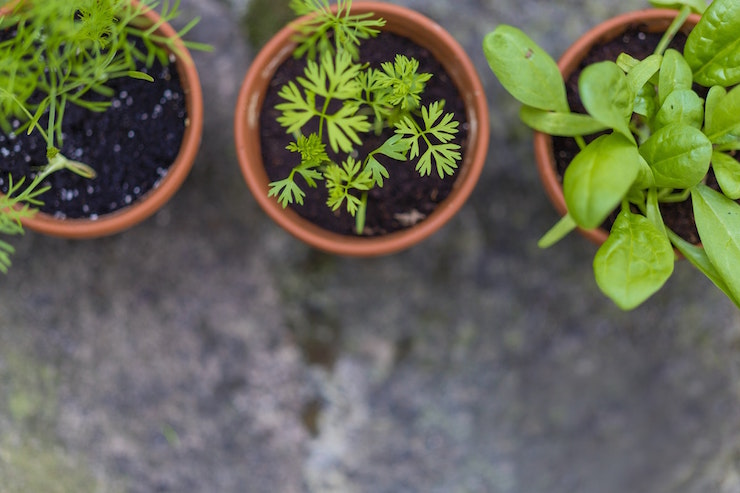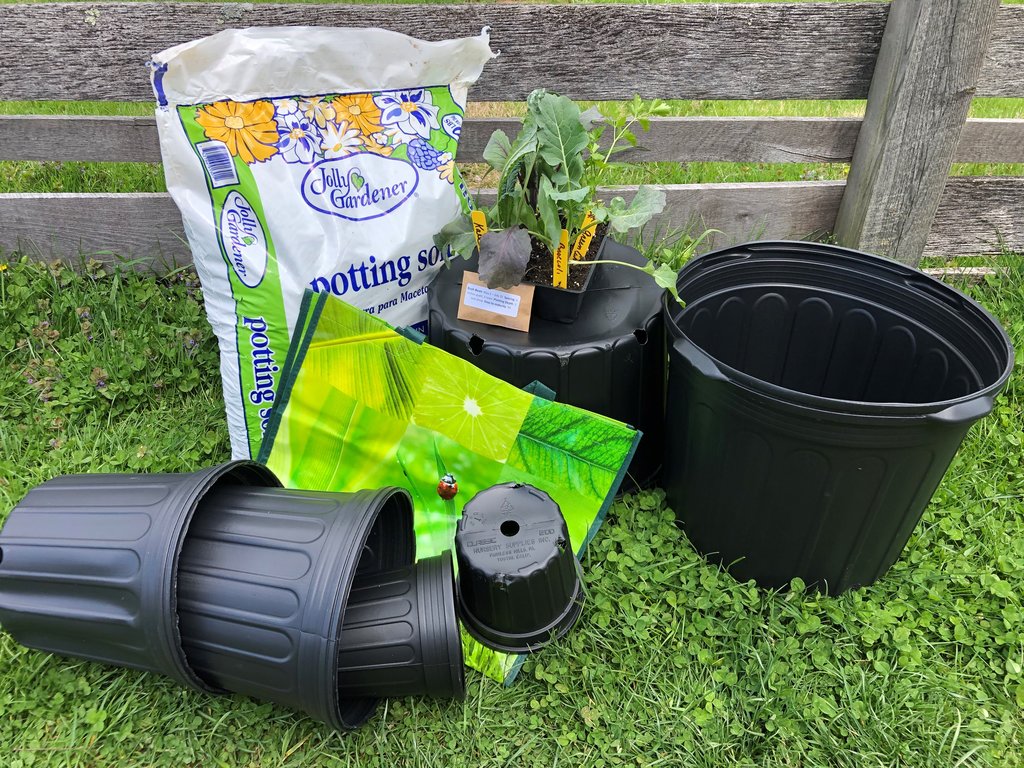It’s Not Too Late to Start Your Container Garden
Gardening can be a wonderful pastime: It provides opportunities to go outdoors, to connect with nature, to work with our hands, and to enjoy the productivity of raising and caring for plants. Edible gardens go one step further, yielding fresh herbs and produce to enjoy from the early spring through late fall.
We have heard from many people in our communities that they are starting gardens this year, and we think that’s great! While we’re always in favor of gardening, it feels especially relevant these days, as we are all more aware of food insecurity. Plus, many of us have more time on our hands to devote to a garden!
We’ve begun to field numerous questions about container gardening from our supporters and neighbors — if you are ready to get your hands dirty, but aren’t quite sure how to get started, you’ve come to the right place!
Here at Chester County Food Bank we’ve been managing gardens and helping people start new plots through our Raised Bed Garden program for more than 10 years. Our Raised Bed Garden manager and garden educator work with host sites for their initial garden set-up and educational support. With their help, our garden partners collectively grow more than 40,000 pounds of fresh vegetables for our partner food cupboards and agencies throughout Chester County!

Container gardening is nothing new to us, and we have some tips and resources to help you start or improve your at-home container garden this year:
A great place to start is with our container gardening best-practice guide, created with the input of our amazing gardening staff, folks from the Oregon Food Bank and the experts at PennState Extension. You can print out the handy PDF guide; it covers all of the basics you need, like choosing a container, deciding what to grow and what not to grow, how much to water and fertilize, plus a list of other resources for further reading.
Your next step is to identify the plants you want to grow, and how many containers you have space for. If you don’t have a lot of outdoor space, consider a fire escape, windowsill, or a corner of your back patio. The best thing about container gardens is you don’t need a huge yard — any little patch of sunlight will do!
Growing in containers is a great option if you have limited space. Choose quick maturing crops like radish and lettuce, or dwarf varieties of tomatoes.
Different plants require different planting methods, including how close together to plant the seeds or seedlings. Our team has put together a helpful series of video tutorials to help with this first step of the process. We have 18 tutorials explaining planting of common garden veggies, like spinach, tomatoes, eggplant, carrots and more!
When it comes to containers you do not need anything fancy. Choose containers that are between 1 and 5 gallon capacity. Small pots restrict the root area and dry out very quickly, so when in doubt, size up. Whatever you use for a container will need drainage holes. Clean buckets, tins and even plastic storage containers can work if you drill or poke a few holes in the bottom for water to flow out. Sanitized kitty litter buckets are the preferred container of many budget-savvy home gardeners! Other items you might recycle, like milk jugs and large yogurt containers can be used to house smaller plants, like herbs.

When using containers, it’s extra-important to water and fertilize your plants regularly. Because their root systems aren’t connected to the earth below, they rely on you to provide these essential components.
Containers lose moisture and nutrients quickly. They’ll likely need to be watered every day in the heat of summer. When it comes to fertilizers, liquid fish emulsion or liquid seaweed are good to use. Containers should be fertilized once a week after the plant is firmly established.
Once your garden is planted and flourishing, consider planting to donate to Chester County Food Bank. Providing fresh produce to our neighbors in need is integral to our mission to fight food insecurity in our community, and every little bit helps. Peas, peppers and eggplants are great options to consider, as they travel well and stay fresh for a long time after harvest. You can also donate a bumper crop! If you end up growing way more zucchini, cucumbers, beans or anything else faster than you can eat it, consider bringing that to us, as well! For more information on, and best practices about, donating garden produce, see here.
We hope you feel excited and empowered to start your own container garden! Once you get in the groove, you’ll be amazed at the profound satisfaction that comes from growing your own food, even if it’s just a few containers of herbs, tomatoes and lettuce! Be sure to share your photos on Facebook and Instagram and tag your garden photos with #GetGrowingChesterCounty
Want to learn more? Check out our mission video, sign up for our newsletter and stay connected. You can also donate food, funds and time to help us achieve our mission. Call (610) 873-6000 to speak to someone about getting involved or to request a tour. Thanks to you, we’re growing a healthier community.
The Chester County Food Bank is the central hunger relief organization serving more than 120 food cupboards, meal sites and social service organizations throughout Chester County. We mobilize our community to ensure access to real, healthy food.
Featured photo & third photo: Chester County Food Bank